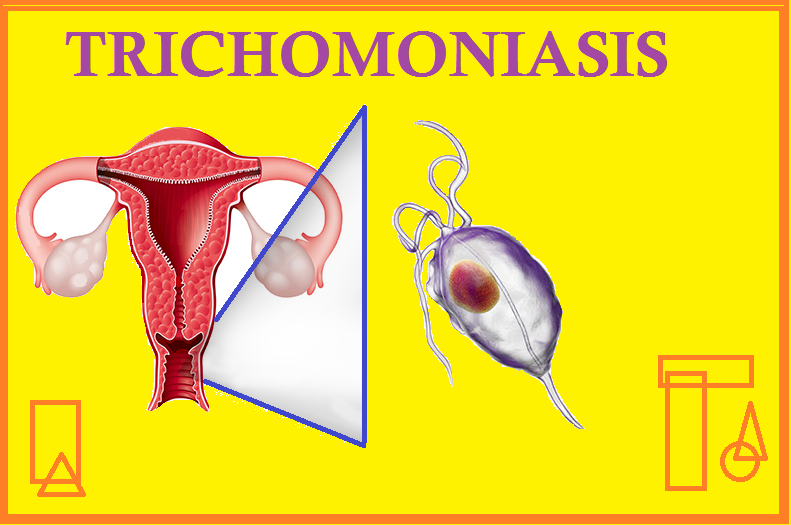Trichomoniasis
Trichomoniasis disease is caused by the protozoan trichomonas vaginalis and it is most common sexually transmitted diseases, causing vaginitis in women & non gonococcal urethritis in men. It can also occasionally be occur by other means, since it can survive in wet and moist environments for long periods of time.
SYMPTOMS
T vaginalis is often harbored asymptomatically. For women with symptomatic disease, after an incubation period of 5 days to 4 weeks, a vaginal discharge develops, often with vulvovaginal discomfort, pruritus, dysuria, dyspareunia, and abdominal pain. Examination shows a copious discharge, which is usually not foul smelling but is often frothy and yellow or green in color. Inflammation of the vaginal walls and cervix with punctuate haemorrhages are common. Most men infected with T vulgaris are asymptomatic, but it can be isolated from about 10% of men with nongonococcal urethritis. In men with trichomonal urethritis, the urethral discharge is more scanty.
DIAGNOSTIC TESTING
Diagnosis is typically made by identifying the organism in vaginal or urethral secretions. Examinations of wet mounts will show motile organisms. Tests for bacterial vaginosis are often positive with trichomoniasis. Newer diagnostic tests include point-of-care antigen tests and nuclei acid amplification assays, both of which offer improved sensitivity compared to wet mount microscopy and excellent specificity.

TREATMENT
The treatment of choice is tinidazole or metronidazole, each as a 2g single oral dose. Tinidazole may be better tolerated and active against some resistant parasites. If single dose can not be tolerated, then other drug like metronidazole dosage is 500 mg orally two times per day for 7 days. All infected persons should be treated, even if asymptomatic, to prevent subsequent symptomatic disease and limit spread. Treatment failure suggests infection, but metronidazole resistant organisms have been reported. These may be treated with tinidazole, longer course of metronidazole, intravaginal paromomycin.
For Informational purpose only. Consult your Physician for advice.